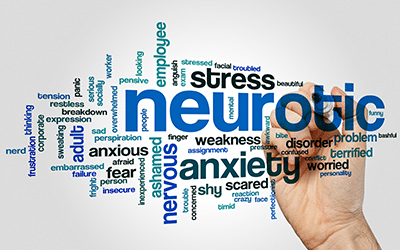“Parents who discipline their child by discussing the consequences of their actions produce children who have better moral development, compared to children whose parents use authoritarian methods and punishment.”
– Simon Baron-Cohen, Zero Degrees of Empathy: A New Theory of Human Cruelty
The Crying Toddler
You’re left with a toddler to take care of at the last minute. The toddler refuses to stop crying. You try to comfort the toddler, feed it, make certain it’s needs are taken care of, it’s not ill or in pain, it’s been entertained, etc. However, it continues to cry, yell loudly, and misbehave.
What is the right thing to do?
Do you:
A. Continue to try pleasing the toddler, or,
B. Sit quietly in the same room doing some other activity generally ignoring the toddler as long as it continues to act up?
In these scenarios, which one would you do?
If you, A. Continue to try to appease the toddler, are you in effect showing the child that this kind of behavior is to be rewarded? Are you just doing what the child expects, regardless of the means by which the child seeks attention? Should you do this if you’ve observed the child’s parents acting in this way even though you don’t agree with the method?
If you choose to go with answer B. Ignore the bad behavior and choose only to respond to a more civil attitude, are you in some way neglecting the toddler? If you choose to sit quietly in the room with the toddler are you showing it that it should be respectful of other’s feelings or get no reward?
Which would you do? Which is the path of the empathetic individual?
It’s a slippery slope, which very empathic people are always trying to walk.
In general, Empathy has a good name. Like that great guy in the office who always helps out, what’s not to love about Empathy?
We’re all also aware of the personalities in our daily and periodic lives who we could call Aggressive. It’s no problem to spot some of these people’s often expected tactics to keep others in check.
However, you may not be aware that too much empathy can play such a huge role in a relationship that it can sometimes cause the interactive imbalance. Within the dynamics of most human interactions, one person takes the role as “more this” or “more that”.
For instance, If you’re always giving a larger than average tip at restaurants, that’s pretty nice and to be commended. However, it may put your significant other in the place of always feeling that they have to be the one to put their foot down when it comes to money. They have to feel somehow like the “stingy” one. The person who gives more money gets to be the “nice” one, If you’re always the “nice” one, that sometimes puts those around you at a bit of a disadvantage and forced into the role of the responsible caretaker, forced to make up the difference. This scenario happens in many types of different ways.
Inconsiderate Empathy
As I was talking to a co-worker some time ago, I was complimenting her on her recent work. I was even sort of gushing, without overdoing it. Another colleague happened to see us in the hallway, came to join the conversation, and heard my positive comments to our mutual colleague. She inserted herself into the conversation and began actually belittling my positive comments as though they were not good enough. This annoying colleague said such things as..”Oh no, amazing isn’t even enough of a compliment, your work was ten times more than amazing”…The acquaintance went on to make herself shine in the eyes of our mutual colleague and after that, I felt sort of embarrassed that I had even come over to offer my compliments or appreciation.
The other acquaintance invalidated my comments and made me feel small while making herself seem bigger. This is the most annoying part, she acted like a person who had been nicer than I had, more appreciative of the work by downgrading my own appreciation in the presence of the creator of the work.
So did this make her more empathetic? Certainly not to me. Was she “nicer” than I was? She offered no fresh commentary of her own, she only used my compliments to our colleague as examples of bad compliments.
On the one hand, if you feel for others you’re a good person, right?
However, it’s sort of easy to see ourselves as good. In fact, even those among us who have committed horrific crimes against others consider themselves to be basically good people.
“Perhaps the most surprising discovery in my early years of trying to understand the criminal mind was that, without exception, offenders regard themselves as good human beings. No matter how long their trail of carnage, no matter what suffering they caused others, every one of them retained the view that he is a good person. ‘If I thought of myself as evil, I couldn’t live,’ said one murderer. ‘Just because I killed someone doesn’t mean I’m a bad person,’ asserted another.”
– Stanton E. Samenow Ph.D., criminal psychologist, author of “Inside the Criminal Mind”
So perhaps our own opinion of ourselves may tend to be just a little biased.
Want to live mindfully?
Shift your habits and make lasting change with Happego’s pre-loaded primes that make balanced living and compassion easy.

